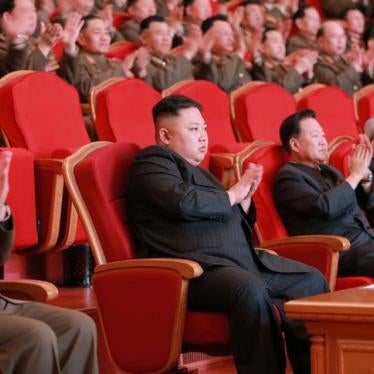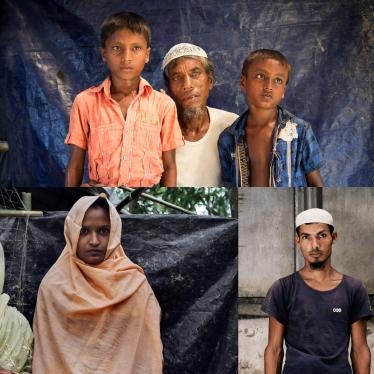The image of a comatose Otto Warmbier being carried off a plane in the United States in June 2017 offered a glimpse of life – and death – in North Korea. Warmbier was a 22-year-old American university student who died from unexplained injuries sustained in a North Korean prison while serving a sentence of 15 years of hard labor after he took a political banner from his Pyongyang hotel. During his 17 months in detention, Warmbier may have endured the kind of physical abuse and torture North Korean detainees commonly receive.
But the US has stepped back on keeping the issue of North Korea’s abuses in front of the UN Security Council. The help of other countries, especially from Europe, is desperately needed.
Five years ago, a United Nations commission of inquiry delivered a terrifying report on imprisonment, enslavement, murder, torture, rape and forced abortion in North Korea. The “gravity, scale and nature of these violations” amounted to crimes against humanity by a state “that does not have any parallel in the contemporary world.” The impossibility of holding responsible North Korean leaders to account led the commission to recommend that the UN Security Council should refer the situation to the International Criminal Court (ICC).
Since the release of that report, the Security Council has met every December to discuss its gruesome findings. China, North Korea’s ally, protector and a permanent council member, along with Russia and other rights-abusing states, would argue that human rights was not a threat to international peace and security. But at least 9 of the 15 council members disagreed, and for four years in a row the council spotlighted North Korea’s human rights record.
The council has yet to act on the commission’s recommendations, including referral to the ICC. However, the annual discussion has been a powerful reminder that North Korea’s systemic abuses have brought unspeakable suffering to the North Korean people and have broadened the council’s previous exclusive focus on North Korea’s nuclear program.
But there was no meeting this past December. The US delegation, perhaps unsure that it would get the necessary nine votes, dropped its plan to call the meeting, in essence giving North Korea a free pass. US officials indicated they planned to revisit the idea in January but that never happened. Perhaps it was the US government shutdown or the uncertainty surrounding Heather Nauert, Trump’s appointee to replace Nikki Haley as US ambassador to the United Nations. More likely the Trump administration was hoping for another summit meeting with the North Korean leader, Kim Jong Un.
Responsibility for making the North Korea meeting happen does not rest solely with the United States. Other current council members, including Belgium, Britain, France, Germany, or Peru, could make a request.
An envoy for the Dominican Republic, which held the council’s rotating presidency in January, told a public meeting with nongovernmental organizations that discussing Pyongyang’s human rights record would be counterproductive at a time when there was dialogue between the North and South. But prolonged negotiations to reach an agreement on nuclear weapons are no reason to cease bringing pressure on North Korea to end its massive abuses against the Korean people. Indeed, Pyongyang’s unwillingness to seriously address human rights provides a window for examining its approach to nuclear issues.
Current Security Council members such as the Dominican Republic, Indonesia, Ivory Coast and South Africa should recognize that they can support nuclear nonproliferation on the Korean peninsula without aligning themselves to a government that continues to commit crimes against humanity. Their support for a council session on North Korea is crucial.
The Security Council should revisit North Korea’s human rights crisis immediately as a threat to international peace and security, as it has done since 2014. Every day that the council ignores the issue, a message is communicated to Pyongyang that the world has forgotten its grave crimes and moved on.
Otto Warmbier and the millions of other victims of North Korea’s brutal leadership deserve justice and an end to these unparalleled atrocities.







